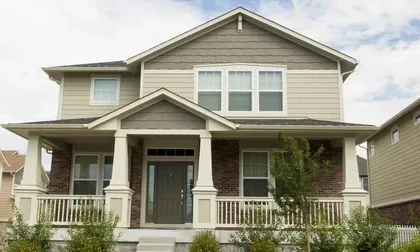Selecting the right flooring system is a critical decision in industrial, commercial, and even residential settings. A flooring solution not only impacts the aesthetics of a space but also determines its safety, functionality, and longevity. One of the most trusted choices worldwide—and increasingly across Pakistan—is epoxy flooring.
Epoxy flooring offers a seamless, durable, and highly adaptable surface suitable for a range of demanding environments. Whether it’s a manufacturing facility, a hospital, or a high-end retail store, epoxy flooring can be tailored to meet specific needs.
This article compares the most popular epoxy flooring options to help you make a well-informed decision. With the growing presence of reliable Epoxy Flooring Manufacturers in Pakistan, sourcing quality materials and support has never been easier. Let’s explore which epoxy flooring type best fits your space.
What Is Epoxy Flooring?
Epoxy flooring is created by mixing epoxy resin with a hardener, which initiates a chemical reaction resulting in a rigid, durable, and thermosetting polymer. Once cured, this surface becomes exceptionally strong, chemical-resistant, and moisture-tolerant—perfect for high-performance environments.
Epoxy flooring is known for:
-
Seamless, non-porous finish
-
High resistance to chemicals, stains, and abrasions
-
Aesthetic customization with colors, flakes, and textures
-
Versatility across industries like construction, pharmaceuticals, manufacturing, and education
Its effectiveness largely depends on the raw materials used. That’s why working with experienced Epoxy Resin Manufacturers in Pakistan ensures consistent performance, reliability, and safety in every application.
Comparison Criteria
When comparing epoxy floor types, several key performance indicators must be considered:
-
Durability & Performance: Withstands mechanical wear, weight, and foot traffic
-
Chemical & Abrasion Resistance: Especially vital in industrial and pharmaceutical sectors
-
Slip-Resistance & Safety: Important in wet or high-traffic environments
-
Aesthetic Appeal: Decorative finishes for commercial or public-facing areas
-
Installation Time & Cost: Affects downtime and project budgeting
-
Ideal Application Environments: Certain types suit particular industries or spaces
-
Sustainability & Maintenance: Eco-friendly production and long-term ease of care
This structured evaluation makes it easier to identify the right epoxy flooring based on functional, aesthetic, and financial priorities.
Popular Epoxy Flooring Types: Side-by-Side Comparison
Self-Leveling Epoxy Floors
Best For: Warehouses, commercial buildings, laboratories
Pros:
-
Smooth, high-gloss finish
-
Fills cracks and imperfections
-
Fast installation
Cons: -
Less suitable for very heavy-duty or impact-prone areas
Self-leveling epoxy creates a flat and seamless surface that’s both durable and easy to clean. It’s ideal where efficiency and aesthetic appeal are equally important.
Epoxy Mortar Floors
Best For: Industrial plants, repair workshops, warehouses
Pros:
-
Extremely durable and impact-resistant
-
Ideal for heavy machinery areas
Cons: -
More expensive and time-consuming to install
As the strongest form of epoxy flooring, mortar systems are often used to repair cracked concrete before applying other flooring systems. The formulation includes graded quartz or sand for extra strength.
Quartz Epoxy Floors
Best For: Clean rooms, commercial kitchens, schools
Pros:
-
Decorative finish with textured quartz
-
Excellent slip resistance
-
Antimicrobial properties
Cons: -
Skilled application needed for a uniform finish
These floors combine epoxy resin with colored quartz grains to offer both style and functionality. They are commonly used in moisture-sensitive areas and environments requiring hygiene control.
Epoxy Flake Flooring
Best For: Garages, retail stores, office spaces
Pros:
-
Visually appealing with decorative flakes
-
Slip-resistant
-
Good mid-range durability
Cons: -
Not ideal for industrial or heavy equipment zones
Epoxy flake flooring adds texture and dimension using vinyl flakes. It’s a favorite in commercial and residential garages for its balance of style, safety, and affordability.
Anti-Static Epoxy Floors (ESD)
Best For: Pharmaceutical units, labs, electronic assembly units
Pros:
-
Prevents electrostatic discharge (ESD)
-
Essential for environments with sensitive electronics
Cons: -
More expensive due to specific conductive materials
Anti-static floors are engineered for safety and reliability in environments where static discharge can cause equipment failure or explosions.
Epoxy Terrazzo Floors
Best For: Shopping malls, airports, academic institutions
Pros:
-
Incredibly durable and decorative
-
Resistant to wear, moisture, and chemicals
Cons: -
Higher cost and labor-intensive installation
Epoxy terrazzo combines aesthetics and longevity, offering colorful, intricate patterns for large public spaces with heavy foot traffic.
Vapor Barrier Epoxy Floors
Best For: Basements, below-grade areas, high-moisture environments
Pros:
-
Blocks moisture vapor transmission
-
Prepares surface for other floor systems
Cons: -
Not a standalone flooring system
Often used as a primer, vapor barrier epoxy is essential for long-term durability in moisture-prone areas and helps protect upper layers from failure.
Tabular Comparison
| Flooring Type | Durability | Slip-Resistant | Aesthetic | Installation Cost | Best Use |
|---|---|---|---|---|---|
| Self-Leveling | High | Moderate | Medium | Medium | Warehouses, labs |
| Epoxy Mortar | Very High | High | Low | High | Industrial plants |
| Quartz | High | Very High | Medium | Medium-High | Kitchens, schools |
| Flake | Medium | High | High | Medium | Garages, offices |
| Anti-Static (ESD) | High | Moderate | Medium | High | Labs, pharma |
| Epoxy Terrazzo | High | Moderate | Very High | Very High | Malls, institutions |
| Vapor Barrier (Primer) | Base Layer | – | – | Medium | Moisture-prone zones |
Choosing the Right Epoxy Flooring for Your Needs
Before choosing an epoxy flooring system, assess your site requirements:
-
Traffic & Usage: High footfall or heavy machinery demands stronger systems like mortar epoxy
-
Chemical Exposure: Laboratories or food-processing units need chemical-resistant flooring
-
Aesthetic Needs: Public spaces may benefit from terrazzo or flake options
-
Budget: Consider long-term savings from lower maintenance and longer lifespan
-
Moisture Conditions: Include vapor barrier layers if moisture is a concern
Consulting with established Epoxy Flooring Manufacturers in Pakistan helps in identifying the right match based on environment, durability, and design goals.
Role of Supporting Materials & Manufacturers
The performance of an epoxy floor depends on more than just the topcoat:
-
Epoxy Resins: Sourced from reputed Epoxy Resin Manufacturers in Pakistan, quality resins ensure superior bonding and finish.
-
Adhesives: Strong bonding is essential in high-stress areas; working with Epoxy Adhesive Manufacturers in Pakistan ensures structural integrity.
-
Tiling & Grouting: In combined surfaces or floor-to-wall transitions, consulting a Tile Bond Manufacturer in Pakistan can ensure watertight, durable connections.
Always prefer ISO-certified suppliers with proven quality control and sustainable production practices.
Conclusion
There’s no one-size-fits-all solution when it comes to epoxy flooring. Each type has its strengths—whether it’s the aesthetic richness of terrazzo, the industrial toughness of mortar floors, or the functional appeal of anti-static surfaces.
The key to maximizing value lies in matching your flooring type with your space’s unique needs. Partner with trusted Epoxy Flooring Manufacturers in Pakistan to receive expert consultation, tailored solutions, and materials that align with global standards.
Final Note: Explore your options, ask the right questions, and invest in epoxy flooring that delivers durability, beauty, and peace of mind for years to come.





